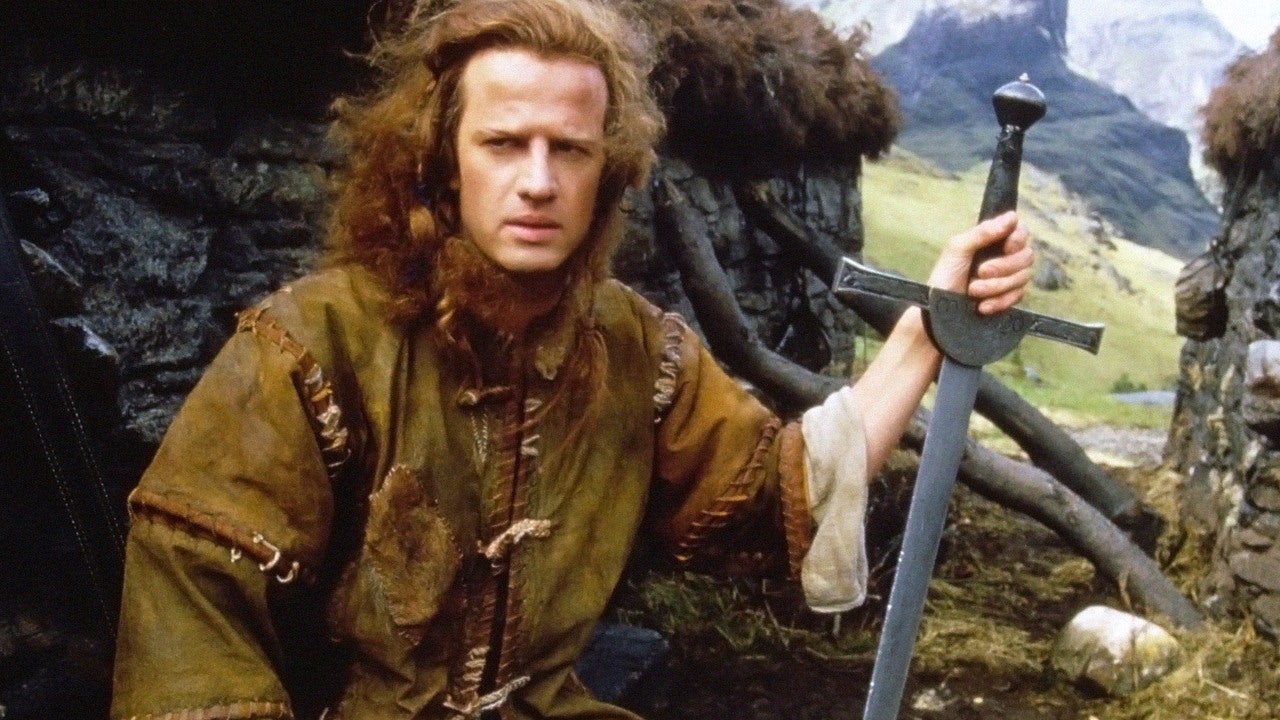
The Henry Cavill Highlander Reboot’s Latest Casting Announcement Proves the Franchise Is Avoiding Its Biggest Mistake
At long last, the Highlander reboot is taking shape. We have a director in John Wick’s Chad Stahelski and a new Connor MacLeod in Man of Steel’s Henry Cavill. The film’s stacked cast also includes Russell Crowe, Karen Gillan, Djimon Hounsou, Dave Bautista, Marisa Abela, and Max Zhang. Even Cavill’s recent injury isn’t doing much to slow the momentum of this hotly anticipated reboot.
The latest casting reveal tells us that Jeremy Irons will play one of the film’s villains. Irons’ character is the leader of The Watchers, a shadowy group that keeps tabs on immortals like Cavill’s Connor and Bautista’s The Kurgan. It’s the first casting announcement that suggests the reboot will deviate from the plot of the 1986 original. And, frankly, it’s very good news for anyone looking forward to this movie or future sequels.
Why does Irons’ casting suggest the reboot series will address the great flaw of the original Highlander franchise? Let’s discuss.
The Messy Continuity of the Highlander Franchise1986’s Highlander is a cult classic for a reason. It’s the perfect combination of ‘80s camp and mythic grandeur, tracing the centuries-long journey of Christopher Lambert’s Connor MacLeod as he fights to become the last immortal standing in a world where people only listen to Queen music. But there’s one glaring flaw with the original that went on to taint the franchise in all its successive forms: The movie really doesn’t leave much room for a sequel.
The problem is that Highlander ends by closing out its central conflict. Lambert’s Connor defeats Clancy Brown’s Kurgan in a duel and acquires “The Prize,” gaining the power of every immortal who ever lived. The film ends with Connor becoming both mortal and omniscient, free to finally enjoy a human life with his new lover, Roxanne Hart’s Brenda Wyatt. That doesn’t exactly leave a lot of room for sequels to build on the formula.
To be clear, most of the Highlander sequels are genuinely bad films for various reasons, not just because the original is so sequel-unfriendly. But it certainly didn’t help that all of them have been forced to build on a foundation that inherently resists further growth. The filmmakers had one hand tied behind their backs from the get-go.
Highlander has become a bizarre franchise where most of the sequels exist in stark opposition to the original film and to one another.
In part because there’s so little room to expand on the Highlander mythos after that first movie, the sequels wound up veering in a lot of weird and conflicting directions. Highlander has become a bizarre franchise where most of the sequels exist in stark opposition to the original film and to one another.
Case in point, 1991’s Highlander II: The Quickening completely reinvents the mythos to reveal that Connor and his fellow immortals are actually alien revolutionaries from the planet Zeist. 1995’s Highlander III: The Sorcerer ignores its predecessor, while also disregarding the ending of the original and revealing that Mario Van Peebles’ Kane is another survivor of The Gathering. 2000’s Highlander: Endgame and 2007’s Highlander: The Source veer in another direction still, acting as continuations of Highlander: The Series and shifting focus to Connor’s kinsman, Adrian Paul’s Duncan MacLeod. Like the series, these movies take place in a continuity where there are still many immortals in existence following The Kurgan’s death. Endgame at least has its merits, but The Source is so widely reviled that the TV series creators famously disowned it, and it’s since been rendered non-canon by the release of a Highlander: The Series sequel audio drama.
None of this even gets into 2007’s Highlander: The Search for Vengeance, an anime film that wisely steers clear of the entire rest of the franchise and tells its own story in the year 2187. You can understand why many Highlander fans prefer to embrace the original film and the TV series and pretend the rest never happened. It’s a lot less messy that way.
How the Reboot Is Fixing the Highlander FranchiseAgain, most of the casting announcements so far have suggested that the Highlander reboot is mostly sticking to the formula of the original. That is, until Irons’ casting and the reveal that the movie will include The Watchers. This ancient organization is a creation of Highlander: The Series, which depicts them as a cabal of mortals who are sworn to observe the actions of immortals but never interfere in their lives. When The Gathering is complete, The Watchers will finally tell humanity that immortals once walked among them.
This suggests that not only is the reboot drawing inspiration from Highlander: The Series, but that the plot is being reworked with an eye toward building a larger, ongoing narrative. As much as the new movie will probably focus on the rivalry between Cavill’s Connor and Bautista’s Kurgan, the inclusion of Irons’ character tells us that there’s a larger conflict playing out behind the scenes.
Presumably, the film’s climax will be similar to that of the original, with Connor triumphing over The Kurgan after a heated battle in modern-day New York. But rather than having Connor win The Prize and become an all-seeing, all-knowing mortal, he’ll likely learn that there are still more battles to come and more immortals to contend with. We can easily picture the reboot ending with a scene where Irons’ character emerges, Nick Fury-style, to tell Connor he’s just taken his first steps into a larger world.
If the Highlander reboot is meant to act as a catalyst for a larger series of films (and we have to imagine that’s the plan), then it only makes sense to go this route. The reboot can’t make the same mistake as the original and close out its core conflict in one movie. It has to leave a reason for those sequels to exist.
Stahelski confirmed as much in a 2024 interview, revealing that Highlander is specifically being reimagined with an eye toward future sequel expansions.
“I think we have some very good elements now,” he said. “The trick is when you have the tagline ‘there can only be one’, you can’t just kill everybody the first time.”
Stahelski also confirmed that the reboot is drawing elements from the TV series, adding, “Our story engages a lot of the same characters and stuff like that. But we’ve also brought in elements of all the TV shows, and we’re trying to do a bit of a prequel, a setup to The Gathering, so we have room to grow the property.”
Those hoping for a standalone, done-in-one action/adventure film in the vein of the original Highlander may be disappointed by this approach. But Highlander always felt like a saga too big to be contained in one film. The original deserved sequels, just not the sequels it received. The hope is that the reboot can pave the way for a series that’s far more consistent in tone and quality than the original run of Highlander films. This time, at least, they’re giving the sequels a fighting chance.
For more, check out our picks for the top 25 action movies of all time.
Jesse is a mild-mannered staff writer for IGN. Allow him to lend a machete to your intellectual thicket by following @jschedeen on BlueSky.











